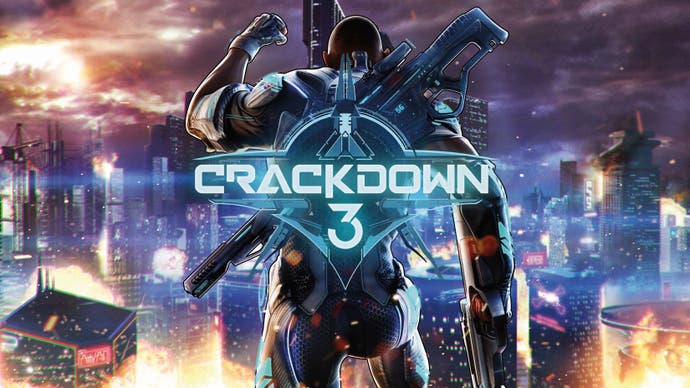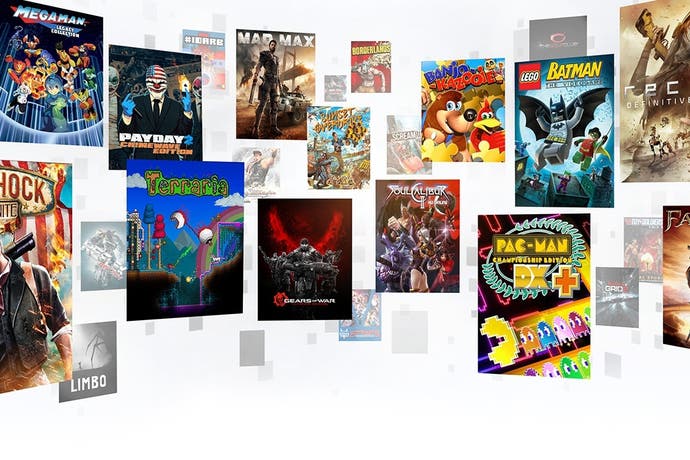Xbox Game Pass revives Xbox One's digital vision - without the evil
Microsoft kills game ownership andˇ it sort of makes sense?
I am being somewhat facetious with that subheading, not to mention self-indulgent. (For the uninitiated, it's a reference to my predecessor Tom Bramwell's classic, stinging editorial on Microsoft's misguided plans for how Xbox One software would work - plans that would eventually be ditched.) With yesterday's announcement that all first-party exclusive games would be added to the Xbox Game Pass subscription service on release date, Microsoft is not killing game ownership. It's not even trying to.
What it is doing is offering a convenient, good value and complementary alternative to game ownership - which is, of course, what it should have been aiming for from the start.
As Tom said back in 2013, what Microsoft originally planned to do with its digital rights system for game ownership on Xbox One made sense from a corporate perspective. It was an attempt to bring the console games market in line with the way digital entertainment was going on other platforms - on iTunes, for example, or more relevantly, on Steam. It was quite obviously designed for a console with no optical drive, but Microsoft discovered it couldn't get away with that; the game file sizes were too big, domestic internet connections weren't good enough, and the retail industry was too important to the success of the console. Once game discs were reintroduced to the equation, the proposition fell apart. The idea that you could buy a physical copy of a game but not trade it in or lend it was scorned by the gaming community and subjected to a pitiless troll by a Sony that couldn't believe its luck. Chastened, Microsoft scrapped the plans and reverted to a conventional game ownership model.
But Steam's near-total dominance of PC gaming shows that customers will accept and even embrace a digital rights marketplace for games - a system where you don't own games but buy the right to access them, and those rights are verified over the internet. What's the difference? It's quite simple: price and convenience. Steam is reliable and easy to use and offers user-friendly benefits like cloud saving. It brings your game collection closer to you, and it has brought the cost of PC games software down considerably over the years. What Microsoft was proposing for Xbox One didn't sound convenient - and we knew it wouldn't be cheap. Blame those retailers again; they won't allow the consoles' digital game stores to undercut their prices, and because they are vital to the distribution of the consoles themselves, they have the power to dictate terms.
We cheered our victory over Microsoft's nefarious schemes at the time, but the truth is that consoles' digital future was and still is being held back. The solution to this impasse? To forget about creating Steam for consoles and to make Netflix or Spotify for games instead. A subscription service is simple, convenient and offers great value - or at least changes the way you think about value. Microsoft got some way towards realising this dream with the launch of Xbox Game Pass, which offers access to a library of over 100 games for £7.99 per month. Crucially, Microsoft was smart enough to spot that the one-size-fits-all subscription offering was the key enticement for a service like this, not the streaming technology. Streaming games has proven to be a costly and glitchy challenge for rivals like OnLive and PlayStation Now, while Xbox has been able to promise "full fidelity" and offline play for Game Pass downloads.
Initially, Game Pass resembled Netflix's streaming service in its early days: an interesting and well-rounded selection of entertainment from the past ten years or so, but not bang up to date. Few if any games on the Xbox Game Pass game list as it stands are less than a year old. What has pushed Netflix over the line and into the current moment is its more recent wave of exclusive TV shows and movies (as well as some canny licensing, such as the deal to release new episodes of Breaking Bad in the UK the moment they were broadcast in the US). The addition of all Microsoft Game Studios releases on day one does much the same for Game Pass, and considerably strengthens its offering.
Now, Game Pass looks less like a tempting addition and more like an actual alternative. If you were planning on buying two Xbox exclusives this year, it has paid for itself; any more than two and it's saving you money, and that's before you even consider the rest of its catalogue. The games themselves stand to benefit, too. Rare's quirky online pirate game Sea of Thieves, due in March, might struggle to convince a wide audience to try it at full price, but now has a captive audience of subscribers who have no excuse not to at least give it a go. Its long-term community will surely be bolstered as a result.
Two important concerns remain, however. The first is a familiar refrain from every Xbox editorial we've written on this site for the past couple of years. Will there be enough exclusive games to support this offer, and will they be any good? Xbox has been lagging behind PlayStation in this area for years and it is only getting worse. The only releases Microsoft could confirm for Game Pass are Sea of Thieves, Crackdown 3 and State of Decay 2. Surely more are coming this year - perhaps a new Forza Horizon, perhaps a new Halo - but beyond these, and a rumoured and very distant Fable reboot, the source of a steady supply of Xbox exclusives is far from clear, and vague promises from Xbox boss Phil Spencer to do something about it are just that - vague.

The second worry is about permanence. Much like licensed series on Netflix, games cycle in and out of Game Pass. (Subscribers have an option to buy them at a reduced price before they're removed, and to be fair the pace of these cycles so far seems to be very slow.) Will Microsoft cycle its own games out of the service after a time? Asked for clarification by Windows Central, Microsoft offered the oblique comment that "all games would continue to cycle in and out of the pool of available titles", suggesting that first-party games would too. If so, this is a short-sighted departure from the Netflix Originals model that has given that service a steadily expanding haven of permanently available, heavily branded exclusives amid the changing seas of its licensed content. For viewers, that builds a confident sense that the library you subscribe to is expanding meaningfully all the time, and that your subscription improves in value the longer you hold on to it.
[Update: After publication of this article, Microsoft got in touch to offer this comment: "We are adding these new Xbox One exclusive titles to the service with the intention of them being a regular part of the value for being an Xbox Game Pass subscriber." While far from definitive, this does at least hint that the Xbox exclusives will stick around on Game Pass for a good long while.]
Microsoft would do well to sacrifice some game sales in the short term for an unbeatable deal that would not only attract more customers but lock them into their monthly subscriptions - and into the Xbox ecosystem - far into the future. It would also dovetail beautifully with the platform holder's impressive commitment to backward compatibility if these games continued to be playable on future Xboxes too. I have a strong suspicion they will, since everything about Microsoft's strategic moves over the last couple of years - Xbox 360 backwards compatibility, Xbox Play Anywhere titles being made available on PC, Xbox One X, Minecraft allowing cross-platform play - suggests that its thinking is that games should live beyond, or above, hardware platforms.
If all this comes to pass, Xbox will start to look like a proper digital game library, every bit as permanent and user-friendly as Steam (and with better curation and quality control). And Xbox Game Pass will offer a beautifully simple and accessible entry point to it that will be hard to pass up. That really is an alternative to game ownership. It seems as though, via the most circuitous route, Microsoft is arriving back at the original idea for Xbox One - where it tried but so spectacularly failed to get in 2013 - only this time it's in a way that can work for everyone.


